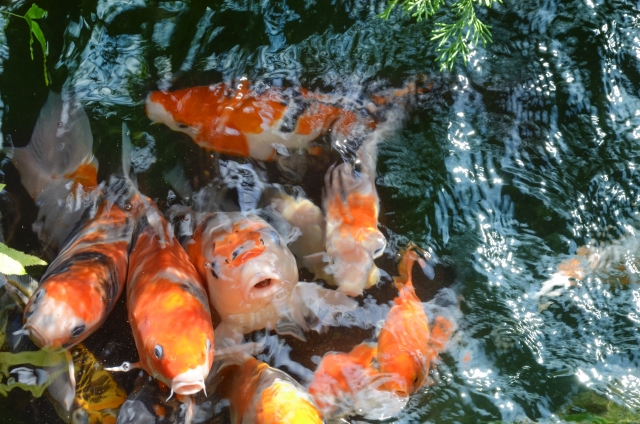This time, I’d like to share IKIGAI lecture that I had on WASABI Talk™️. My image of IKIGAI is the picture above. It might seem a bit strange, but in my opinion, this picture of Wagashi (traditional Japanese confection) represents the spirit of IKIGAI of Japanese so well.
今回は、WASABI Talk™️で行った生き甲斐講義を記したいと思います。私の生き甲斐のイメージは上の写真となります。少々妙に思われるかもしれませんが、私の意見としては、この和菓子こそが日本人にとっての生き甲斐のイメージをよく表していると思うのです。
IKIGAI and these beautiful and intricate Wagashi are in common? I believe they are. I try to explain the reason why in this lecture. IKIGAI is very favored topic in Japan. “What is your IKIGAI ?” is often asked. And the word IKIGAI is now an international word.
生き甲斐とこの美しく手の込んだ和菓子に何か共通点があるのか。私は大いにあると思います。その理由をこの講義でご説明したいと考えています。生き甲斐とは、日本でよく好まれる話題です。「あなたの生き甲斐は何ですか。」とはよく聞かれる質問であり、今や生き甲斐は国際語になっているのです。

IKIGAI is explained like this as well.
また、生き甲斐はこのようにも説明されます。

However, not as an object of academic research, the concept of IKIGAI that is closely linked with our everyday life is much simpler yet philosophical. It could be “the reason why you wake up every morning” or “the biggest joy in your life” or “essential factor for you to be you”. It is closely connected with your identity. It is directly combined with your attitude of living.
しかしながら、学術研究の対象としてではなく、私たちの毎日の暮らしに密着している生き甲斐の概念は、より単純でありながらも哲学的なものです。それは「毎日あなたが朝起きる理由」でもあり「人生最上の喜び」でもあり「あなたがあなたである為に不可欠な理由」でもあります。自分の自己存在証明と深く関わってきて、それは生きる態度に直接結びついています。
In my case, I loved reading and writing and studying English and eating since very little. And all other factors and experiences made who I am. Nobody forced me, but I developed all the interests in my own way and in the long run I became an English teacher, translator, interpreter, and bilingual blogger, hoping to contribute to the world
私の場合、とても小さな頃から読んだり書いたり英語を勉強したり食べたりすることが大好きでした。そして他の多くの要素や様々な経験が絡まり合って、私という人間を形作りました。誰にも強制されることなく、それらの興味を追い求めてゆき、長じては英会話講師、翻訳者、通訳者、そしてバイリンガルブロガーへとなり、世界に貢献したいと志を抱いています。
And I believe each one of you have your own very unique IKIGAI. IKIGAI is something beautiful. For sure, something ugly can’t be your IKIGAI since it gives you power to live.
そしてまた、皆さん一人ひとりはそれぞれにユニークな生き甲斐を持っておられると思います。生き甲斐とは美しいものです。何故なら生き甲斐は生きる力をくれるものなので、醜いものは生き甲斐にはなり得ないのです。
IKIGAI varies and develops more richly and tends to become altruistic as a person ages and matures.
生き甲斐は、人が年を重ね成熟するに従ってより豊かに発展して、利他的な傾向を持つようになります。

For kids, IKIGAI is something you love from the bottom of your heart. It could be watching anime, or drawing pictures, or keeping a diary, or playing house, or collecting stickers, or playing musical instruments, or learning Japanese, or playing games, or playing soccer, or helping your mother with chores, or playing with your brother and sister. Anything can be your IKIGAI.
子供にとっては、生き甲斐とは自分が心から大好きなものであるのです。それはアニメを観ることかもしれないし、絵を描くことかもしれないし、日記を書くこと、おままごとをすること、シールを集めること、楽器をひくこと、日本語を勉強すること、ゲームをすること、サッカーをすること、お母さんのお手伝いをすること、あるいはきょうだいと遊ぶことかもしれません。なんでも生き甲斐になり得るのです。
Speaking of myself, I entered university in Tokyo when 18, then first experienced a huge setback that I lost all the confidence in myself. It was so shocking that all the other students seemed much smarter and superior than me. I was a country girl from Kyushu island and so naive. (Kyushu island is southern island of the Japanese archipelago. ) I was so desperate to find my true values and read lots of books. And found lines that are still dear to me. It says “Someone who is satisfied with his/her life shares the same feature. The person lives for people around them by making use of him/herself. The point is making use of him/herself, not sacrificing.”
私自身の話をすると、十八歳で東京の大学に入学した際にものすごく大きな挫折を経験して、自分の中の自信を全て失いました。一人残らず全ての学生が自分よりもずっと賢く優秀に見えるという経験は、かつてない強烈な衝撃でした。私は九州出身の田舎娘で、世間知らずそのものだったのです。(九州は日本列島の南の島です。) その時は死にものぐるいで沢山の本を読み、自分の真の価値を見つけようとしました。そして、今でも自分の心に寄り添ってくれる言葉を見つけました。それは「自分の人生に満足して生きている人には一つの特徴があります。それは周りのために自分を活かしながら生きている人です。ポイントは自分を活かしながら、であって犠牲にしながらではありません。」という言葉でした。
Therefore, I believe IKIGAI includes a sense of mission as well.
そういう訳で、生き甲斐には使命感が伴うのだと思います。

I want to focus on to after-retirement life in Japan. In Japan, senior citizens are so vigorous and the eagerness to contribute to the society is immense. Many people take part in volunteer in the community. In my neighborhood, elderly men are protecting to see elementary school students go walk home safely every day. Every time I pass by them, we make a greeting “konnichiwa!” and protecting children in the community is so beautiful.
ここで日本の定年退職後の生活について、焦点を当ててみたいと思います。日本では高齢者はとても活力があり、社会へ貢献したいという熱意は非常に大きなものがあります。多くの人が自分のコミュニティーでの奉仕活動に参加しており、私の家の近所では、高齢男性が小学生たちの見守りを毎日して、安全に家に帰れるようにしています。私はその方達とすれ違う時はいつも「こんにちは」と挨拶をします。自分たちのコミュニティーの子供たちを守ろうとする活動は、とても美しいものだと思います。
And Japanese are fond of learning. Not only students, but lifelong education is so thriving. If you are learning something, that means you can teach something. And it is beneficial for others. It is not superior nor inferior. It is to help others with your strength and uniqueness by rejoicing. This is the core being of IKIGAI, I believe. And here, let’s look back the first image of IKIGAI that I showed you.
また、日本人は学ぶことが大好きです。学生のみならず、生涯学習もとても盛んです。もしも何かを学んでいると、それは誰かに何かを教えることができて、人の益になります。つまり生き甲斐とは、優劣の問題ではないのです。それは自分の強みやユニークさを持って、人のことを喜んで助けることなのだと思います。そしてこれこそが、生き甲斐の核になるものだと考えています。ここで今一度、最初にお見せした生き甲斐のイメージを見てください。

In my opinion, IKIGAI is something like making each one of your own beautiful Wagashi. It is the art of living. If you cheat, it will ruin your work. No matter how long it takes, it’s worthy as long as you keep pouring energy and passion. You are creating your own work. It’s one of a kind, one and only in the world. Please work hard to complete your beautiful work.
私の意見としては、生き甲斐とは私達それぞれが自分の美しい和菓子を作るようなものだと思うのです。それは生き方の美学であり、もしもズルをすると自分の作品を台無しにしてしまいます。どんなに時間がかかっても、熱量と情熱を注ぎ続けている限りは、価値あるものなのです。皆さんは自分の作品を作りあげているのです。それは他に類を見ないほど独特で、また世界に唯一無二の作品です。美しい作品を一生懸命完成させて行ってください。
And here’s Key Takeaways.
そしてこちらがまとめになります。

Blessings to you all and keep up the good work!
皆さんに祝福がありますように、そして良い仕事を続けて行ってください!






















